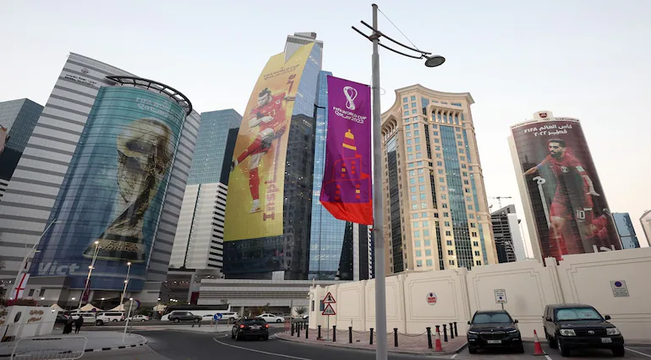FIFA World Cup 2022: Qatar is the first World Cup host in the Middle East.
New Delhi, November 25, 2022: It was December 2010, and I was a sports producer with ESPN STAR Sports in Singapore. Sportscenter was the flagship brand, and all eyes were on Switzerland as FIFA, the world governing body of football, gathered to announce the hosts of the 2018, and the 2022 FIFA World Cup. The results were announced, and our dismay turned into a coping mechanism — levity in brevity, sports shows allowed for it.
We introduced the top story, with this jingle: “it’s large and it’s small, it’s hot and it’s cold, it’s yes and it’s no, not a Katy Perry song, but Russia and Qatar”, who to the dismay of the entire footballing world, perhaps even themselves, were awarded the 2018 and the 2022 World Cups respectively. Russia, in its erstwhile USSR avatar still had significant footballing pedigree, and infrastructure. But why would the tiny nation of Qatar — of two million people, with barely any large commercial centres outside the capital of Doha, a nation that had never qualified for the world cup, one with extreme summers — show such alacrity and financial profligacy to host the football extravaganza?
To understand Qatar’s motives, one needs to look beyond this tournament that’s underway, where the ‘beautiful game’ takes place under ugly settings as protests of human rights violations, LGBTQI discrimination, lack of freedom of speech, and democratic norms have raised the ire of the global community.
Qatar has some of the largest natural gas reserves in the world, and enormous wealth, all controlled by the country’s emir; and they used all the financial clout they had to secure the 2022 bid. The tiny Gulf state allegedly spent $300 billion on infrastructure and building 12 brand new, air-conditioned stadia, 11 more than the existing one that they had prior to 2010. That’s a lot of stadia for a place that’s tinier than Connecticut, in the United States, built on the backs of migrant workers in South Asia — some estimates suggest that around 7,000 of these workers arrived back in body bags to their home country from Qatar. Qatar may have paid for the new infrastructure, but the voiceless and now faceless migrant workers have paid for it with their lives.
The World Cup captures global imagination, it also captures the country’s coffers. Brazil, which hosted the 2014 World Cup paid approximately $15 billion in infrastructure modernisation, but faced the chagrin of the populace where people took to the street to protest the high cost of the stadiums and corruption, at the expense of investing in public infrastructure. This is Brazil, the epitome of FIFA success with five World Cups, a country more passionate than any other about football, and one that epitomises the beautiful game in ‘Joga Bonito’.
































